Bios for participants in the Guerrilla Television Symposium.
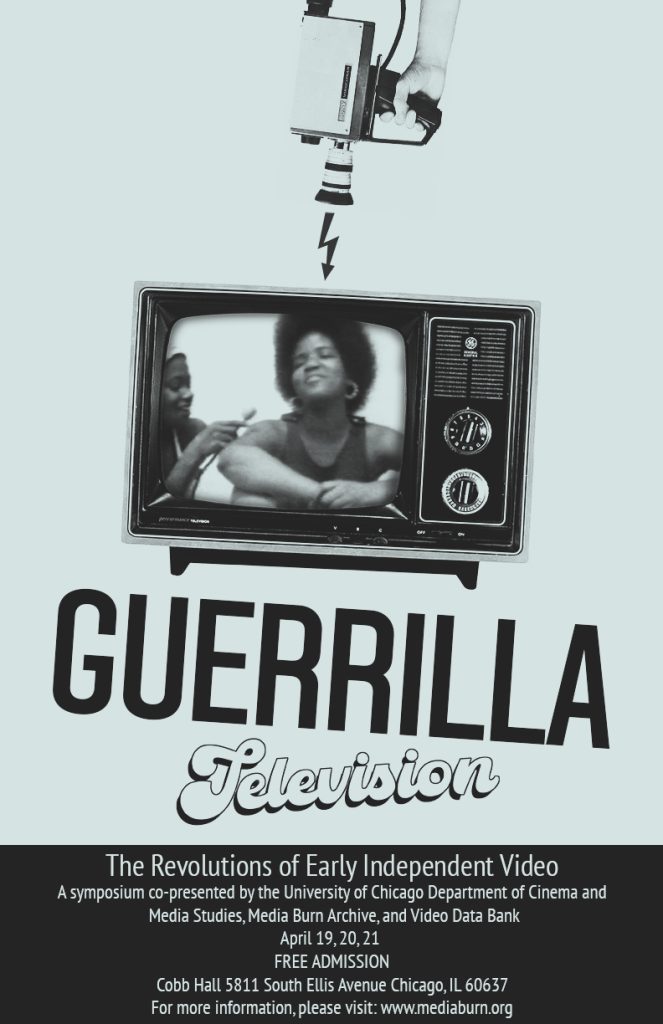
A symposium presented by Media Burn, the University of Chicago’s Cinema and Media Studies Department, and the School of the Art Institute’s Video Data Bank.
April 19-21 at the University of Chicago’s Cobb Hall 307 (5811 S. Ellis Ave)
When video cameras first became widely available in the late 1960s, a global network of artists, activists, and documentarians quickly had the same realization: video is not merely a new format; video will change EVERYTHING about moving image media. Over the next decade-plus, idealistic videomakers fought to overturn the top-down hierarchies of the film and TV industries to create a true “people’s television” that encouraged participation, feedback, and contributions from its audience. The proponents of Guerrilla Television threw out the rules of media, filming ordinary people in their own communities, and the revolution quickly spread. The result was a remarkably democratic movement, one in which communities that rarely appeared on network television – women, poor people, people of color, political radicals, queer people – told their own stories. This symposium – and a series of related screenings and discussions – brings together artists, scholars, and archivists to discuss the legacies of this crucial but underappreciated era of independent media, starting with a screening on Friday, April 19 of key works of Guerrilla Television, introduced by the videomakers.
Register for free at: https://www.eventbrite.com/e/guerrilla-television-the-revolutions-of-early-independent-video-symposium-tickets-852499638367?aff=oddtdtcreator
Browse the full schedule of screenings and panels HERE.
Guerrilla Television symposium homepage HERE.
Speaker Bios
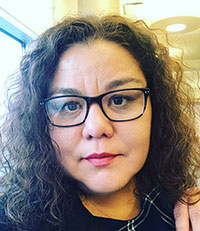
Angela J. Aguayo
Angela J. Aguayo is Associate Professor in the Department of Media & Cinema Studies and Acting Director of the Roger Ebert Center for Film Studies at the University of Illinois Urbana-Champaign. Her most recent book, Documentary Resistance: Social Change and Participatory Media (2019) investigates the political impact of documentary practice. Aguayo is also an award-winning director and producer of documentary shorts utilized in community engagement campaigns, exhibited at museums, and viewed at film festivals around the world. Aguayo is the founding Director of the Illinois Community Media Project, establishing efforts to support media production opportunities for underserved communities across the state.
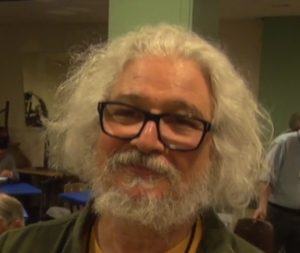
Eddie Becker
Eddie Becker is a Washington D.C.-based documentarian whose career spans over five decades. Since the 1970s, Becker has been a fixture in activist circles, collaborating with video cooperatives to document social movements. From anti-war protests to environmental rallies and World Bank demonstrations, his work captures the voices of those on the front lines. During the Iran-Contra Affair, Becker collaborated with investigative journalists at the National Security Archive to preserve crucial evidence, including backup computer tapes. His efforts helped establish White House and federal emails as permanent records, ensuring transparency Becker remains active, documenting the rise of right-wing and religious fundamentalist movements, culminating in his coverage of the Capitol Insurrection.

Skip Blumberg
Skip Blumberg is a producer, filmmaker, camera journalist, artist, and video pioneer. On his own and as a member of TVTV and the Videofreex, he has made hundreds of productions over his 50-year career. They can be found online at www.SkipBlumberg.com and www.MoreArtistsMovies.com, in the permanent collections of MOMA and other museums, and on TV on Showtime, PBS, the Disney Channel, and National Geographic, among other channels. He is the recipient of three New York City Emmys, a Guggenheim Fellowship, an Ohio State University Journalism Award, and many other honors.
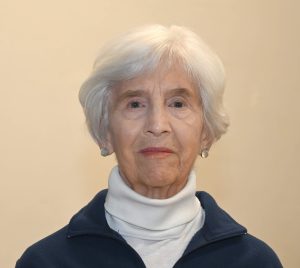
Eleanor Boyer
Eleanor Boyer started videomaking in the mid-1970’s, when portable video became available to individuals outside the television industry. In 1974 she with staff at Chicago’s Loop Center YWCA formed a Women’s Video Project to train women in video skills. From 1979 to 1987, as an independent video producer, she worked with Chicago-area organizations, including the YWCA, Latin Women in Action, and the Midwest Women’s Center, to make educational and documentary videotapes on violence against women, women’s health, women in non-traditional jobs, women in sports and women in the arts. Boyer was among the initial members of the Chicago Videomakers Coalition, a grass-roots organization formed in 1977 to increase the level of cooperation and technical standards among independent video makers by sharing knowledge and production experience. She was active in the Chicago Editing Center and Center for New Television.
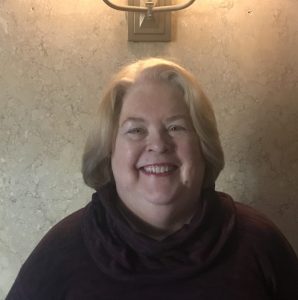
Deirdre Boyle
Deirdre Boyle is Professor Emeritus in the School of Media Studies at The New School. Her book Subject to Change: Guerrilla Television Revisited (Oxford Univ. Press, 1998) marked the end of an important chapter in her life reporting on early portable video and the activists and artists who seized upon the medium as a powerful tool to speak back to power and create new forms of representation. Fales Library & Special Collections holds Boyle’s “Guerrilla TV Archive,” which includes research materials that she amassed for her writing on video history and preservation. She has written or edited eight books, including most recently Ferryman of Memories: The Films of Rithy Panh (Rutgers Univ. Press, 2023), as well as numerous reviews, essays, and interviews. She has taught in the United States, Russia, Turkey, and Hong Kong, and has programmed independent film and video series for cable and public television, museums, universities, public libraries, and international traveling exhibitions. She has been awarded fellowships from the John Simon Guggenheim Memorial Foundation, the Fulbright Foundation, and the Asian Cultural Council.

Tom Colley
Tom Colley is the Director of the Video Data Bank. He has been with the VDB in a variety of roles since 1999. During his time as Archive and Collection Manager, Tom led the process of migrating the VDB’s collections from analog to digital formats, and he has been integral in projects to modernize the VDB’s distribution systems and digital workflows. Tom collaborates in running the Butcher Shop, an artist-run studio space. He received a BA in Studio Art and Anthropology from Oberlin College, and an MS in Library and Information Science from the University of Illinois, Urbana-Champaign.
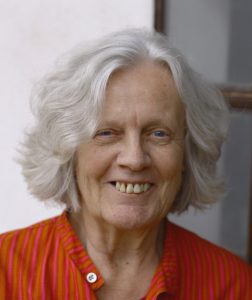
Ariel Dougherty
Ariel Dougherty‘s path as an independent mediamaker has evolved into feminist media strategist. Her work, grounded in fifty years of advocacy for women’s cinematic story-telling, encourages its unleashing from patriarchal domination. As a teacher, she has enabled everyday women and girls to create their own stories reflecting a vision of the world they see and dream. Showing these works, especially in community settings, remains a central concern. Co-founder of Women Make Movies, in 1972, she has mentored hundreds of women mediamakers, produced scores of works, and directed eight media of her own. She writes about the intersection of feminist media, women’s rights and funding. Now she is completing a book about community-based feminist moving media teaching groups, their successes and challenges.
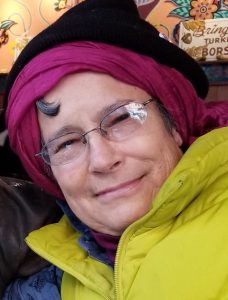
Tracy Fitz
Tracy Fitz is one of the original members of L.O.V.E. (Lesbians Organized for Video Experience) and the LoveTapesCollective video library on their Vimeo Channel/YouTube Channel/Facebook Page. Tracy is a lifelong feminist activist, currently investigating a way for earthlings (hubeings) to end bullying, perhaps the main mechanism used to perpetuate the patriarchal way of life (enslaving women (huwus)) and all beings and the earth, through destruction, rape, incest, war etc. She is lesbian, cis huwu, computer programmer, community gardener, waterfall builder, ocean body surfer, musician/composer/poet/video/filmmaker, tango dancer, downhill skier, Licensed Acupuncturist, trained in Building Performance(BPI)/Green Buildings(USGBC-LEED)/Passive House/ Solar+Renewable Energy and a recovering incest survivor. Her websites: Innerbeing.net, Acupuncture-Alternatives.com, CitySolar.us.
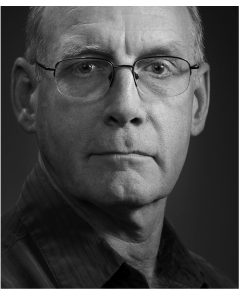
Gene Fredericks
Gene Fredericks has worked with media technologies for over 55 years. He’s worked as a kinescope operator, a TV cameraman, editor, director and executive producer and managed media facilities. As a technologist he designed and developed teleconferencing systems and applications for Kaiser, Apple, BP, HP, The Getty….. He helped Google determine a best of breed codecs after their acquisition of YouTube, and consulted with several companies on media system development. Gene has had several art pieces in museums, and galleries. He’s currently digitizing over 3000 tapes in NOVAC’s video archive, some of which he worked on during his Guerrilla TV times.
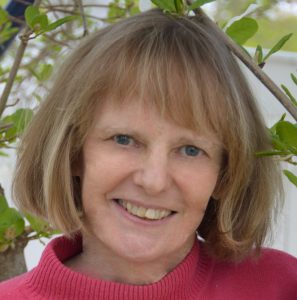
Julie Gustafson
Julie Gustafson is an award winning documentary videomaker whose work explores the intersection of public policy and individual lives. A recipient of a Guggenheim Fellowship, her earliest work, The Politics of Intimacy (1973) broke ground as part of a wave of avant garde, feminist media production. Many of her later works aired nationally on PBS and cable, including Giving Birth (1975), Home (1979), Pursuit of Happiness (1987), Casting the First Stone (1991) and Desire (2005). From 1973-1988, Gustafson was a principal (with John Reilly) of Global Village, a pioneering media arts center in NYC.
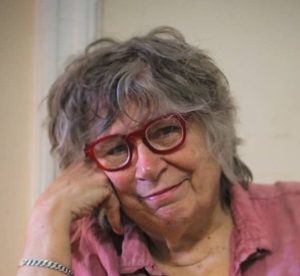
DeeDee Halleck
DeeDee Halleck is a media activist, founder of Paper Tiger Television, and co-founder of the Deep Dish Satellite Network, the first grassroots community television network. Her first film, Children Make Movies (1961), was about a filmmaking project at the Lillian Wald Settlement in Lower Manhattan. Her film Mural on Our Street was nominated for an Academy Award in 1965. Ms. Halleck has received many awards and much recognition including a Guggenheim Fellowship for an ecological series for the Deep Dish Network; two Rockefeller Media Fellowships for The Gringo in Mañanaland (1995), a feature film about stereotypes of Latin Americans in U.S. films, which was featured at the Venice Film Festival and the London Film Festival. She has also received three awards for lifetime achievement: The George Stoney Award from the Alliance for Community Media, the Lifetime Achievement Award of the National Alliance for Media Arts and Culture (NAMAC), and the Herbert Schiller Award from the 2003 Schmio Awards.
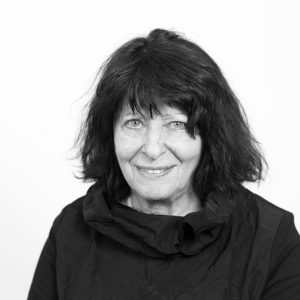
Judy Hoffman
Judy Hoffman is a retired Professor of Practice in the Department of Cinema and Media Studies at the University of Chicago. She was active in the Alternative Television Movement of the early 1970’s, experimenting in the use of small format video equipment. Hoffman played a major role in the formation of Kartemquin Films, working on many of their films. A major focus of her work has been with the Kwakwaka’wakw First Nation of British Columbia, producing films and videotapes about the reclaiming of Native culture. She was the Associate Producer on the award-winning Box of Treasures, a film tracing their efforts to repatriate cultural artifacts. For over ten years Hoffman directed a video training program on the N’amgis Reserve so that the Kwakwaka’wakw could make their own videos, and she continues to work with them on their projects. Currently over 200 videotapes are being archived by the U’mista Cultural Center and she was formally adopted in a potlatch.

Caullen Hudson
Caullen Hudson is a social entrepreneur, activist, fitness professional, and award-winning film director and producer with over half a decade of experience in media. He is the founder and Executive Producer at Soap Box Productions and Organizing. With over 10 festival appearances for the short film Blue Notes and the micro-documentary Calvin’s Story, he has produced projects supported by activist groups geared towards affecting policy and changing public opinion on important social issues. Caullen has also worked on various independent film and TV projects including Embers, which premiered at the Chicago International Film Festival. Additionally, some of his work, like the feature documentary What’s Beef?, has been used as educational curriculum in university classrooms.
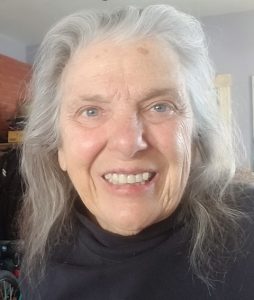
Barbara Jabaily
Barbara Jabaily is one of the original members of L.O.V.E. (Lesbians Organized for Video Experience) and editor of the LoveTapesCollective video library on their Vimeo Channel/YouTube Channel/Facebook Page. She is a lifelong photographer/videographer/editor/producer. She worked at Women’s Interart Center film department and made several short 16mm films. After moving to Colorado, worked independently with KBDI-PBS12, produced award winning docs about Battered Women, LBGTQ+, and headed up Teletunes, an alternative music video show. Originating producer of Colorado Inside Out, the longest running talk show in Denver. Continued solo on YouTube as DreamTellerVideo with shorts of DNC protestors, Pueblo Indivisible, Women’s Marches, and LBGTQ+ events. Currently exhibits photography in Pueblo and seeks to archive her raw footage.
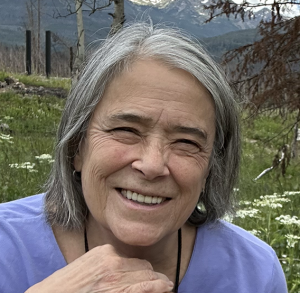
Mona Jimenez
Mona Jimenez started using video in 1974 for creative and social justice projects. She is a longtime preservationist, educator, and organizer dedicated to participatory and cross-disciplinary models for media archiving and preservation – most recently community archiving workshops.
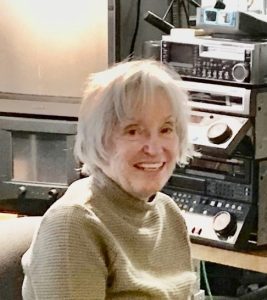
Pat Lehman
Pat Lehman is a video artist, documentarian, and teacher based in Colorado. Working as the Art Director for the Computer Image Corp. (CIC), Lehman collaborated with technicians and programmers on some of the earliest artworks created with a Scanimate Computer. Her video Drug Abuse played in the Director’s Fortnight section of the 1972 Cannes Film Festival, where it was among the first computer-generated works to play the festival. Lehman made videos throughout the 1970s and 1980s in both abstract imagery and in documentary and taught video production. In 1992, she moved to Boulder, where she has continued to work in video as an artist and a teacher.

Joan Logue
Joan Logue is a pioneer in the field of video portraiture. Since 1971, she has completed hundreds of video portraits for installations. In 1979, she developed another form or portraiture called “30-Second Portraits.” Her portrait subjects include Jasper Johns, Joan Mitchell, Jacques Derrida, John Cage, Willem DeKooning, Julia Kristeva, Rosa Parks, Cesar Chavez, Noam Chomsky and many more. Her videos have screened in museums and galleries all around the world. She has been awarded many grants and fellowships, including the National Endowment for the Arts, the New York State Council on the Arts, French Ministry of Culture, the DAAD Fellowship, the Pew Charitable Trust, the Guggenheim Fellowship, and the Pollock-Krasner Foundation.
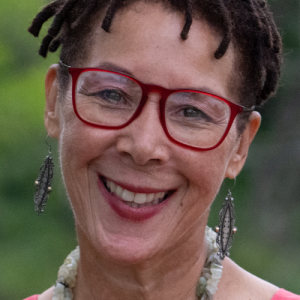
Judith McCray
Judith McCray is an award winning documentary filmmaker, broadcast journalist and producer. Twenty six years ago she founded Juneteenth Productions to find and tell stories from the perspective and experiences of people who matter, whom we hear too little about or from. She passionately believes that media is an effective tool for positive social change and reaching people and communities that are underrepresented. She loves sailing and horseback riding – but rarely gets to do either.
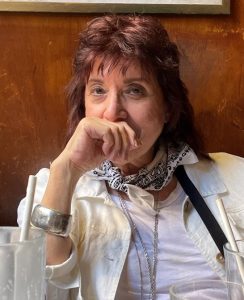
Susan MIlano
Susan Milano’s introduction to video started at Global Village in 1970, working with co-founder, John Reilly as a teaching assistant for video production courses.. At Steina Vasulka’s suggestion, she organized what came to be the first Women’s Video Festival at the Kitchen in 1972. She led the video program at The Women’s Interart Center and began incorporating sculptures and installations into succeeding Festivals and shows held there. After taking a workshop with Shirley Clarke she joined the TP Videospace Troupe, which strongly influenced her subsequent work, notably Video Swing and BackSeat. As a producer for Barry Rebo, they brought small format video to the field of location production for Pink Floyd, Bruce Springsteen, and Mohammed Ali among others. She maintains a substantial archive of files, documents, videotapes and ephemera chronicling video’s early days in New York.

Raphael Nash
Raphael Nash is an independent film & video producer, director, and adjunct professor at DePaul University. He received his MFA in Film & Media Arts from Temple University in 2011. While pursuing this degree, he worked as a film instructor for the non-profit, Digital Youth Network, where he worked closely with middle & high school students on the south-side of Chicago. Here, he helped to expose young people to film & television production, and mentored a select group into collegiate film programs. In 2012, he launched Endangered Peace, Inc., and would eventually bring those same mentees with him.

Tara Merenda Nelson
Tara Merenda Nelson is the Curator and Director of Public Programs at Visual Studies Workshop in Rochester, NY, where she oversees a collection of over 10,000 16mm film and early video titles. Tara is the lead programmer for the VSW Salon series, and is the Managing Editor for VSW Press.
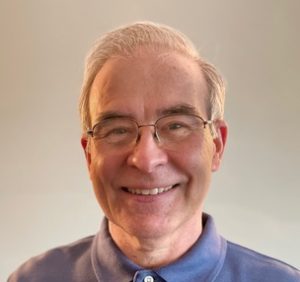
Mirko Popadic
Mirko Popadic of Mir Productions, Inc., is a lifelong Chicagoan and an independent producer, director, videographer, and editor. Over the years, he has been involved in education, theatrical arts, medical education, and advocacy-related issues. Mirko’s career began in 1978 as a field producer with Communications for Change, which was an experimental non-profit organization dedicated to using small format videotape within local organizations. Mirko worked extensively with the Uptown community on Chicago’s northside to help educate and raise awareness of neighborhood issues. Since 1991, he has worked on several projects with the Council for Disability Rights including his award-winning video Inclusion: A Special Education Dilemma. Some of his other awards include: the Midwest Emmy Award, NEA Regional Fellowship Award, two Illinois Arts Council Fellowships, and The Council for Disability Rights Gargoyle Advocacy Award.
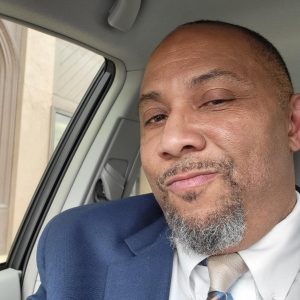
Tom Poole
Tom Poole has spent more than 30 years producing, directing, and curating mostly community-oriented documentaries and programs focused on the arts, social change, youth and black culture. He is a co-founder of the award winning program Not Channel Zero, was the executive director of Deep Dish TV and Pittsburgh Community Television, and has been a producer on the PBS series Positive: Live with HIV and Signal to Noise: Life with Television. Currently, he is researching and writing a treatment for a documentary about ENCORE, a black bi-weekly magazine (1972-1981) that covered domestic and international news.
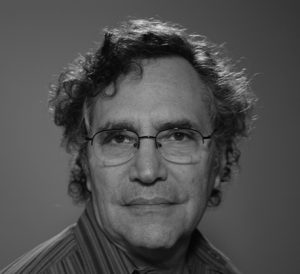
Gordon Quinn
Gordon Quinn is the founder and Senior Adviser of Kartemquin Films. He was the executive producer of the Oscar-nominated documentaries Edith and Eddie, Abacus: Small Enough to Jail and Minding the Gap. Some of Quinn’s other documentary credits include Home for Life, Inquiring Nuns, Taylor Chain, The Last Pullman Car, Golub, Hoop Dreams, Vietnam, Long Time Coming, Stevie, In The Family, Refrigerator Mothers, Milking The Rhino, and The New Americans. Recently he directed For the Left Hand, Prisoner of Her Past, A Good Man, and ’63 Boycott, the latter of which was shortlisted for an Oscar nomination. Some documentaries he executive produced include The Interrupters, The Trials of Muhammad Ali, The Homestretch, In The Game, Dilemma of Desire, Raising Bertie, Almost There, Life Itself, Represent, Finding YingYing, and America to Me. Quinn helped create the “Documentary Filmmakers’ Statement of Best Practices in Fair Use.”
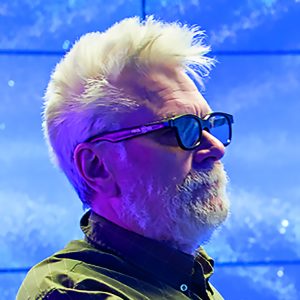
Daniel J. Sandin
Daniel J. Sandin is an internationally recognized pioneer of electronic art and visualization. He is director emeritus of the Electronic Visualization Lab (EVL) and an Emeritus Professor in the School of Art and Design at the University of Illinois at Chicago. As an artist, he has exhibited worldwide, and has received grants in support of his work from the Rockefeller Foundation, the Guggenheim Foundation, the National Science Foundation and the National Endowment for the Arts. In 1991, Sandin and Tom DeFanti conceived and developed, in collaboration with graduate students, the CAVE virtual reality theater. In recent years, Sandin has been concentrating on perfecting the design of the CAVE and its derivatives and creating networked virtual reality hardware and software systems. He continues to create content in the networked VR medium for exhibition in museums and galleries.

Steve Seid
Steve Seid was a media curator at the Berkeley Art Museum/Pacific Film Archive for twenty-five years. During that time, he presented almost a thousand public programs, featuring experimental media, forgotten film genres, and a sampling of international cinema. He also helped build the PFA’s collection, particularly video art and personal cinemas from the Bay Area. Notable would be the restoration of Steven Arnold’s Luminous Procuress (1971) and poet ruth weiss’s only film effort, The Brink (1961). Seid has also been involved with several publications, most importantly, Radical Light: Alternative Film & Video in the San Francisco Bay Area, 1945-2000, co-edited with Steve Anker and Kathy Geritz; Ant Farm 1968-1978, co-edited with Constance Lewallen; and his recent solo effort, Media Burn: Ant Farm and the Making of An Image.

Helena Shaskevich
Helena Shaskevich is a doctor of philosophy candidate in art history at the Graduate Center, City University of New York, where she is writing a dissertation on 1970s feminist video art and political activism. She is currently a fellow at the Graduate Center’s New Media Lab. Her writing has been published in Feminist Media Histories, Panorama: Journal of the Association of Historians of American Art, Art Journal, and Camera Obscura.
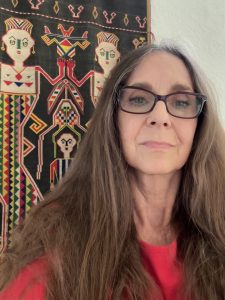
Barbara Sykes
Barbara Sykes is a pioneering video artist, documentarian, curator, and educator whose works have been shown extensively worldwide, including at the Museum of Modern Art, Art Institute of Chicago, Kunstmuseum Bonn, and Musée d’Art Moderne de Paris, among others. Sykes performed with Tom DeFanti during the legendary Electronic Visualization Events, EVE Events; the first real-time computer performances in 1975 and 1976. Sykes’s later productions explored themes of spirituality, ritual and indigineity from a feminist perspective. Recipient of numerous grants and artists residencies, she shot in Asia, the Mideast and Africa, and in 1988-1989, she created an international precedent for Chicago’s new media art by presenting her work and a curated program in Japan, Australia, Spain and was the first woman video artist to present in China. She is one of the featured artists and contributors in the book, New Media Futures: The Rise of Women in the Digital Arts, and a featured artist in the Museum of Contemporary Art in Chicago’s retrospective exhibition, “Art in Chicago, 1945-1995.” Sykes is a retired Professor of Television at Columbia College.
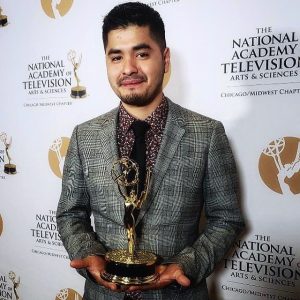
Steven J. Walsh
Steven J. Walsh is a storyteller, defying the stigmas of his Southeast Chicago upbringing and breaking ground in uncharted creative territory through multi-perspective storytelling. Walsh has made the climb up from rather humble beginnings, shattered stereotypes, and emerged as a Johns Hopkins Graduate and two-time Emmy award-winning producer. He is the founder of Omni Media and Marketing and has made it a mission to shed light on his negatively characterized neighborhood through his upcoming documentary, Southeast: a city within a city. His concentrations are in education, writing, directing, and producing.
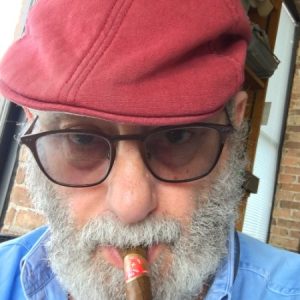
Tom Weinberg
Tom Weinberg has been producing ground-breaking video and TV programs for more than 40 years. He began his career with alternative video pioneers TVTV, and his credits include more than 500 nonfiction television programs and educational videos as producer, director, and executive producer. His work with public television and WTTW over more than 30 years includes the long-running independent film and video showcase Image Union, which he created and produced for the first ten years of its 35-year history. He was executive producer of the independently-produced PBS series The 90’s, which provided a forum for cultural and artistic expression not previously seen on TV. He founded the Fund for Independent Television in 1990 to produce and distribute independent television that educates and engages audiences worldwide. In 2004, he founded Media Burn Archive.
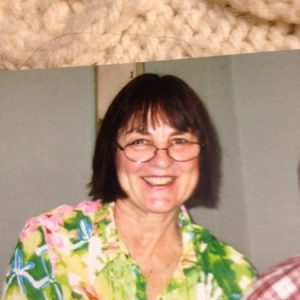
Denise Zaccardi
Denise Zaccardi is the Executive Director and founder of Community Television Network (CTVN). She holds a Ph.D. in Communications from The Union Institute and wrote the nation’s first dissertation on media arts curriculum for low-income, minority youth. She earned an M.S. in Early Childhood Education from State College in Buffalo, and a B.A. in Psychology from the University of Dayton. At CTVN, Dr. Zaccardi has put together a team of seasoned artist/teachers carefully selected not only for their exceptional ability to engage and teach disaffected youth but to represent a broad range of vital skills and knowledge including psychology, marketing, organizational dynamics, writing, audio, editing, producing, directing, graphics, and animation.

0 Comments
You can be the first one to leave a comment.